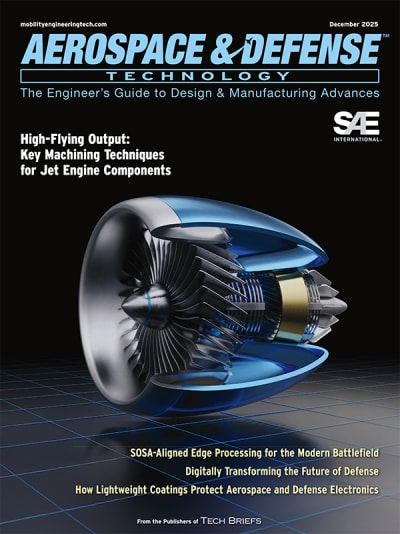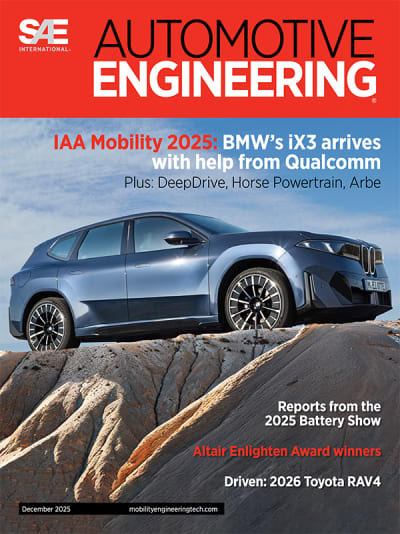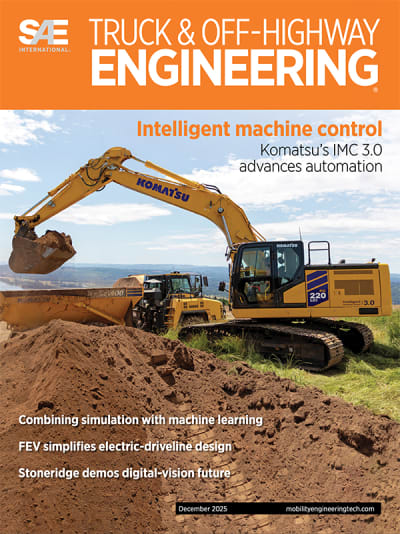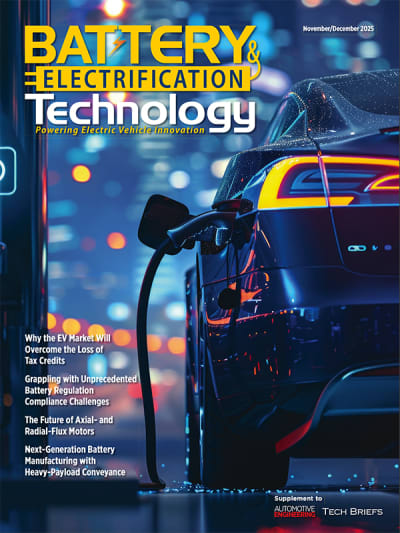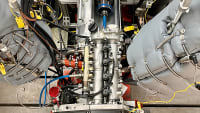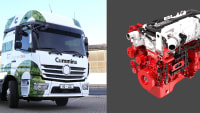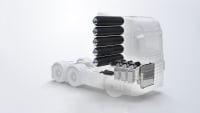The Future of Carbon-Neutral Fuels for Heavy-Duty Machines
Industry experts weigh in on renewable and low-carbon fuels at SAE COMVEC 2023.
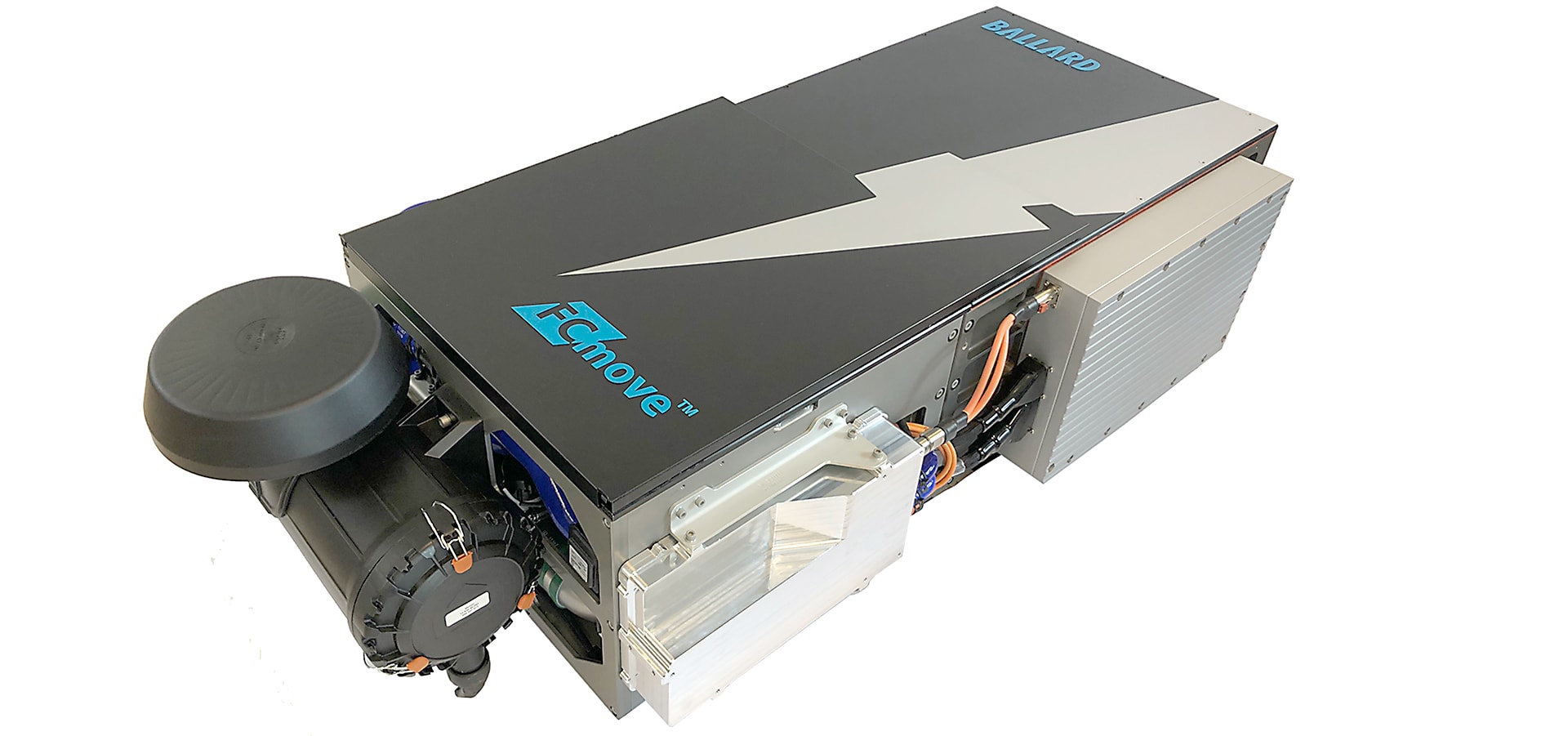
Decarbonization of commercial vehicles and off-highway machines is rapidly becoming a hot-button topic among regulators in the EU, Asia and North America. In addition to cracking down on emissions of light vehicles, various government agencies are now looking to reduce the tailpipe emissions from all manner of industrial equipment.
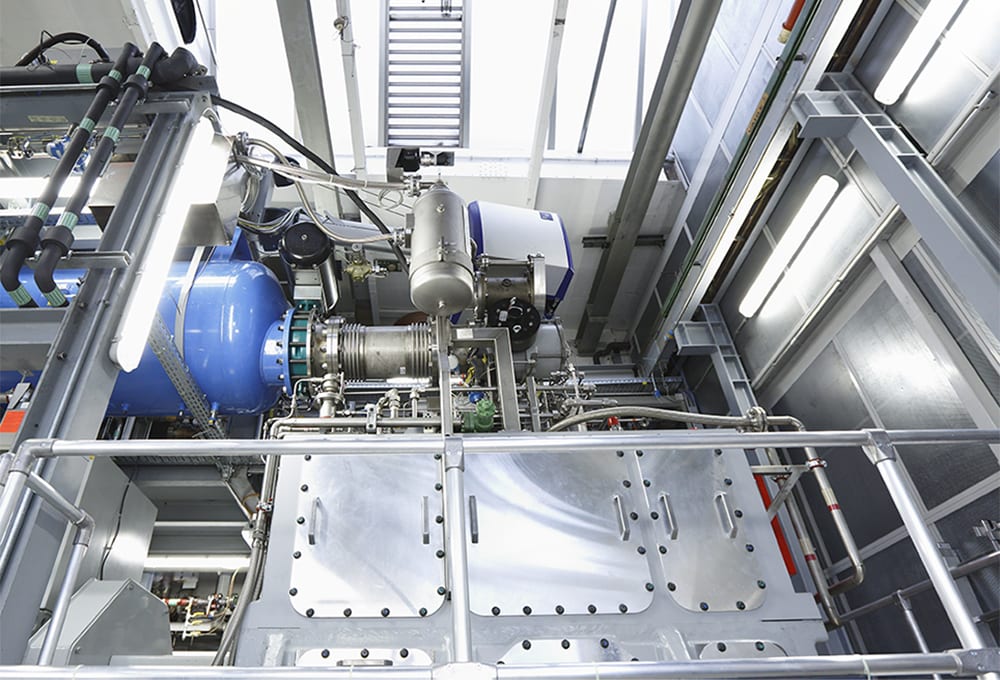
SAE Media attended an expert panel at the 2023 SAE COMVEC conference that covered renewable and low-carbon fuels as well as usage of hydrogen. The panel consisted of SMEs and engineers from various OEMs such as the Traton Group company MAN, Aramco and Ballard. They discussed the various ways in which these industries can reduce or even eliminate emissions from their machines while also discussing the economic feasibility of doing so.
Hydrogen was one of the main topics of discussion, including the need to lower the overall cost of hydrogen production. “When we talk about cost of energy in the future, we’re already paying for this today,” said Eric Guter, Vice President, Hydrogen for Mobility at Air Products. “When we look at fossil fuels in terms of their overall cost to the environment, the effects of climate change and other aspects of combusting fossil fuels, we’re already paying for it. The price of hydrogen today is probably cheaper in the long run than what we’re currently paying.”
The panel also addressed what industries are most likely to adopt hydrogen as a fuel first. “The answer to that question lies in who has the best business case for H2,” said Andreas Broda, head of fuel-based propulsion systems for MAN. “Some of these industries need H2 in order to decarbonize because for one reason or another, there’s no alternative. That is where we’re seeing the most demand from the market for this technology and why the adoption is likely to come from highly regulated countries first.
“We also see there are specific business cases in the market,” Broda continued. “Industries such as mining, where the load factor is very high, are the most likely candidates for hydrogen or other sustainable fuels where pure electrification just isn’t practical at this time. We expect to see a large amount of growth in the heavy-duty industries for hydrogen and other sustainable fuels such as synthetic fuel in around five years’ time.”
The future use case for the diesel combustion engine was another discussion point for the panel. “I certainly think it still has a future,” said Michael Traver, senior engineer for Aramco Research Center-Detroit. “The scale of many of these machines essentially requires a powertrain that burns hydrocarbon fuel. It may not be long lived in passenger cars, but the heavier the duty is required the more likely it is that a combustion powertrain is neededMircea Gradu, chief engineering officer of Ballard Power Systems, outlined the scalability of fuel cells as a carbon-free power source for machines that would not require combustion engines. “The top priority when designing any fuel cell is safety,” he said. “Everything after that is determined by the customer requirements. There are also a large set of requirements emerging in the on-highway commercial vehicle space, such as crashworthiness, fueling and other challenges.
“Fuel cells have a lot of potential in this space,” he continued, “but we need to ensure that we are meeting these various challenges from our customers for them to make sense from a business standpoint. Each use case is going to have unique needs, but if we can’t meet those while also making them [the cells] make sense on the financial ledger as well, adoption is going to be slow regardless of regulatory pressures.”
Top Stories
INSIDERRF & Microwave Electronics
![]() FAA to Replace Aging Network of Ground-Based Radars
FAA to Replace Aging Network of Ground-Based Radars
PodcastsDefense
![]() A New Additive Manufacturing Accelerator for the U.S. Navy in Guam
A New Additive Manufacturing Accelerator for the U.S. Navy in Guam
NewsSoftware
![]() Rewriting the Engineer’s Playbook: What OEMs Must Do to Spin the AI Flywheel
Rewriting the Engineer’s Playbook: What OEMs Must Do to Spin the AI Flywheel
Road ReadyPower
![]() 2026 Toyota RAV4 Review: All Hybrid, All the Time
2026 Toyota RAV4 Review: All Hybrid, All the Time
INSIDERDefense
![]() F-22 Pilot Controls Drone With Tablet
F-22 Pilot Controls Drone With Tablet
INSIDERRF & Microwave Electronics
![]() L3Harris Starts Low Rate Production Of New F-16 Viper Shield
L3Harris Starts Low Rate Production Of New F-16 Viper Shield
Webcasts
Energy
![]() Hydrogen Engines Are Heating Up for Heavy Duty
Hydrogen Engines Are Heating Up for Heavy Duty
Energy
![]() SAE Automotive Podcast: Solid-State Batteries
SAE Automotive Podcast: Solid-State Batteries
Power
![]() SAE Automotive Engineering Podcast: Additive Manufacturing
SAE Automotive Engineering Podcast: Additive Manufacturing
Aerospace
![]() A New Approach to Manufacturing Machine Connectivity for the Air Force
A New Approach to Manufacturing Machine Connectivity for the Air Force
Software
![]() Optimizing Production Processes with the Virtual Twin
Optimizing Production Processes with the Virtual Twin

